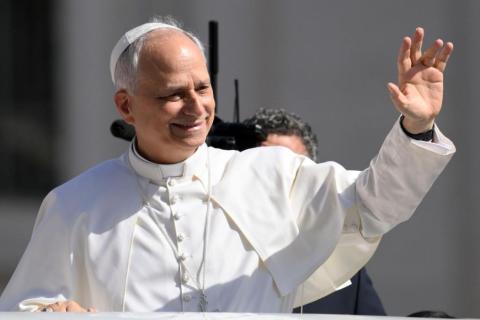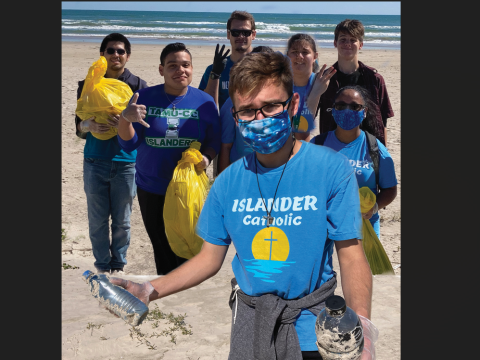
Photo by Andreistanescu | Dreamstime.com
The first thing that we have to respond is that Mass is a unique experience. It is not the same as a theatrical show or a concert. Attending Mass is not about being entertained by the priest and the choir. It is an encounter between God and his family.
It is important to “go to Mass,” as we say, because we are invited by Jesus himself to do this in his memory. He offers us something through the celebration of the Mass that requires our full, active, conscious participation.
For young people, and in fact for most people in our time, there is a tendency to choose to take part in things that we find personally interesting. We do not want to step out of our comfort zone to discover something new or different, unless we already have a sense that it can fit with our view of the world. The Mass is meant to take us into a different way of being, to encounter God on his own terms.
The fourfold structure of the Mass offers a way to understand its meaning. Every Mass includes welcoming, Word, sacrament and mission.
Welcoming happens before Mass starts and at its beginning, with the opening song and the greeting. Look around you and see who is there. Smile at the people who gather with you. When you speak to those you know, introduce them to your children. This establishes a relationship.
Children who go to school together, who see one another at Mass, can welcome each other to the experience. When they see teachers or priests who are part of their school experience, it adds a different aspect to their usual school relationship. Before you go to church, remind them of others you expect to be there. Ask them who they expect to see.
The Scriptures and the music of Mass all have a particular theme. If you read the Gospel together before going to Mass, you will be more prepared to hear the Word. Tell your children that Jesus has a message, a Word just for them, but that you don’t know exactly when in the Mass it will be given to them—in the Scriptures, in the homily, in the songs, or even during the times of silence. Invite them to listen closely. Discuss the meaning of the Scriptures, and after Mass, ask them about the message they received.
The Eucharist is the central reality of the Mass. Remind them that it is really Jesus, in his risen body, who gives himself to us in the sacrament. Show reverence, genuflecting toward the tabernacle and kneeling in the pew before Mass. Let them see how receiving the host is central to your life. If you can make visits to church outside of Mass and attend Eucharistic adoration, this will also help your children to hunger for the sacrament.
Finally, the mission that is given at the end of Mass, with the final blessing, is to carry what has been received out into the world. Make Sundays special, visiting those who cannot come to Mass, or sharing breakfast with your family after Mass at a favorite restaurant, before the other activities of the day interfere. Talk about what your family has been invited to share with the world.
One final and especially powerful point can be made around the Feast of All Souls (November 2) or on the anniversary of the death of a loved one. Remind your family that the silence which follows Holy Communion is a time we experience on earth, which brings us close to those who have gone before us. We can recall our grandparents, relatives and friends, and how their presence with us at the Mass can bring us to the threshold of heaven. Eternity and Time meet in the Mass, and in this silence and worship, we are one with God and with all the communion of saints.
Chiara Lubich offers a reflection which suggests that our own lives, especially in experiences of suffering, can be seen from the perspective of the Mass. “If you suffer and your suffering is such that it prevents any activity, remember the Mass. Jesus in the Mass, today as once before, does not work, does not preach: Jesus sacrifices himself out of love.
In life we can do many things, say many words, but the voice of suffering, maybe unheard and unknown to others, is the most powerful word, the one that pierces heaven. “If you suffer, immerse your pain in his: say your Mass; and if the world does not understand, don’t worry. All that matters is that you are understood by Jesus, Mary, the saints… It is too great to understand! His Mass, our Mass.” (Essential Writings, p. 130)
So, what do we “get” out of Mass? At every Mass we attend, we get a welcome, as well as the Word, the sacrament and the mission. And in the silence, we encounter God’s plan for all humanity. We can carry the lessons of the Mass to every experience and grow in relationship with God and with our neighbor.












